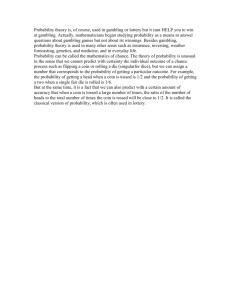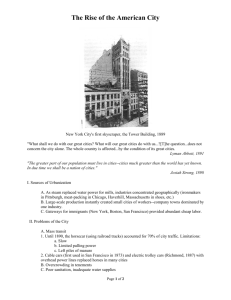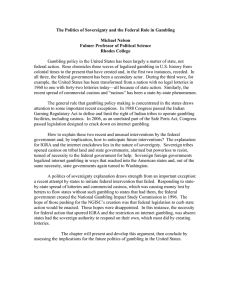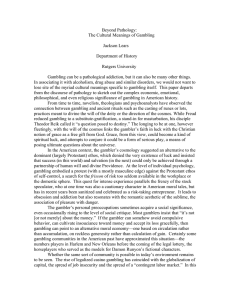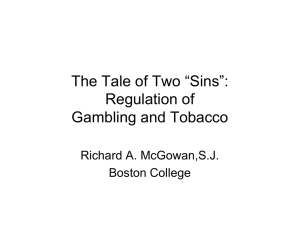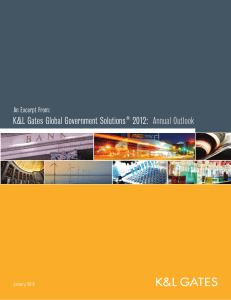Christianity and the (Criminal) Gambling Enterprise David A. Skeel, Jr. William Stuntz
advertisement
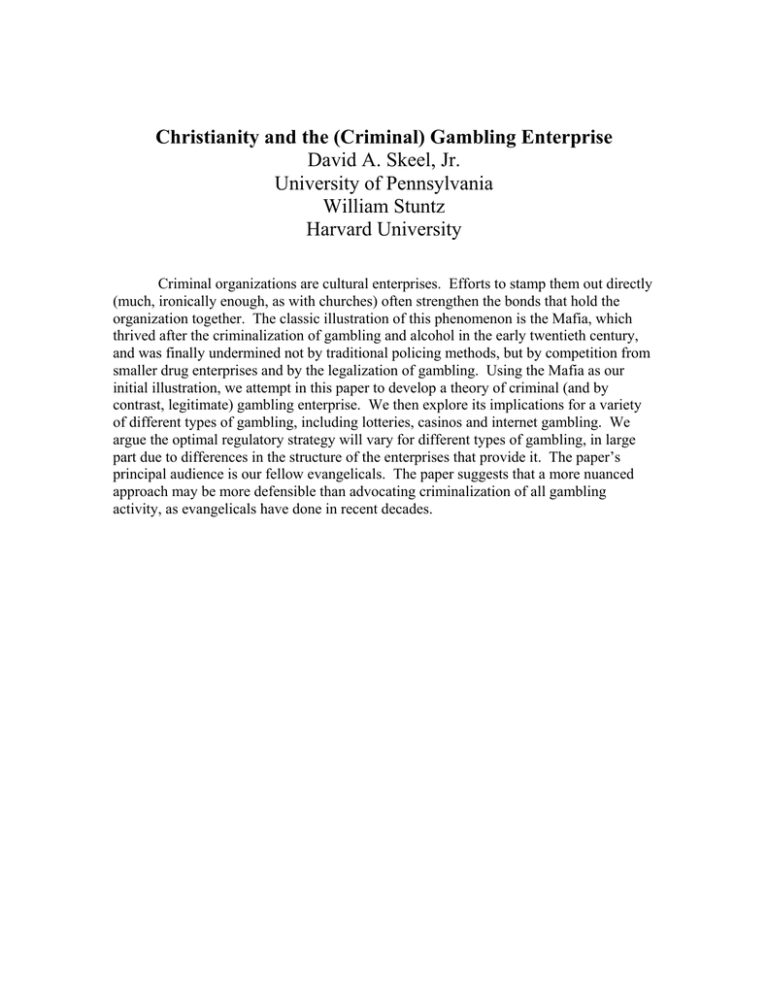
Christianity and the (Criminal) Gambling Enterprise David A. Skeel, Jr. University of Pennsylvania William Stuntz Harvard University Criminal organizations are cultural enterprises. Efforts to stamp them out directly (much, ironically enough, as with churches) often strengthen the bonds that hold the organization together. The classic illustration of this phenomenon is the Mafia, which thrived after the criminalization of gambling and alcohol in the early twentieth century, and was finally undermined not by traditional policing methods, but by competition from smaller drug enterprises and by the legalization of gambling. Using the Mafia as our initial illustration, we attempt in this paper to develop a theory of criminal (and by contrast, legitimate) gambling enterprise. We then explore its implications for a variety of different types of gambling, including lotteries, casinos and internet gambling. We argue the optimal regulatory strategy will vary for different types of gambling, in large part due to differences in the structure of the enterprises that provide it. The paper’s principal audience is our fellow evangelicals. The paper suggests that a more nuanced approach may be more defensible than advocating criminalization of all gambling activity, as evangelicals have done in recent decades.


